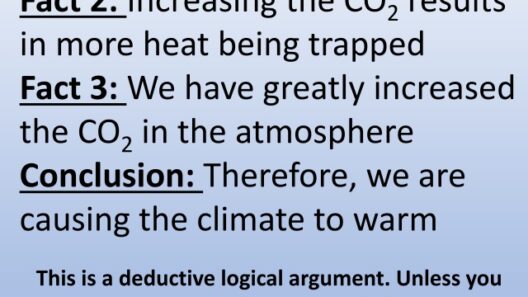The tempestuous dance of climate change, much like a relentless tide, threatens to reshape our world in profound and calamitous ways. Among the most pressing concerns is the unrelenting impact of global warming on human health. As the earth warms, our bodies find themselves ensnared in a complex web of escalating risks. The indecipherable links between a heating planet and human health illustrate a startling reality—our well-being is irrevocably intertwined with the climate we inhabit.
First and foremost, the resurgence of heat-related illnesses draws a scalding line between rising temperatures and human health. The average global temperature has climbed significantly, engendering a milieu conducive to heat stress conditions. Vulnerable populations, including the elderly and those with pre-existing health conditions, face an imminent threat as extreme heat events proliferate. In cities, the so-called “urban heat island” effect exacerbates the issue, where concrete and asphalt absorb and retain heat, creating areas that can be several degrees warmer than surrounding rural locales. This phenomenon not only induces heat exhaustion and heatstroke but also aggravates chronic illnesses such as cardiovascular disease, thus illustrating that the consequences of a warming planet render our health precarious.
Moreover, the veritable surfeit of allergens emerges as another corollary of climate change. Heightened levels of carbon dioxide stimulate the flourishing of various plants, notably ragweed, which can exacerbate seasonal allergies. The extended growing seasons, powered by warmer temperatures, lead to increased pollen production. Consequently, many individuals, who may have previously maintained a semblance of respiratory health, now find themselves grappling with hay fever and asthma. The stunning upsurge of allergy-related health complications underscores the intricate relationship between our environment and physiological responses, illustrating that the warmth of our planet comes at a cost to our respiratory well-being.
The ramifications of global warming extend beyond heat-related ailments and allergens, as they create fertile ground for vector-borne diseases to thrive. As the climate shifts, so too does the habitat of myriad vectors, such as mosquitoes and ticks, whose populations expand into previously inhospitable areas. Diseases like malaria, dengue fever, and Lyme disease are no longer constrained to their historical belts, resulting in a precarious situation for unprepared regions. As we encroach upon the natural habitats of these vectors through urbanization and deforestation, the risks associated with these diseases become much more palpable, revealing just how interconnected our actions are with global ecological shifts.
In tandem with these immediate health concerns is the emergence of mental health challenges, which often goes unnoticed amid physical health discourse. The phenomenon known as eco-anxiety, characterized by persistent worry about the state of the environment, has garnered increasing attention. Individuals grappling with the realities of climate change frequently experience feelings of helplessness and despair. The mental toll of witnessing the destruction of ecosystems, intensified natural disasters, and the looming uncertainty of the future weighs heavily on countless individuals. This emotional burden signifies that global warming is not merely an environmental quandary but also a profound catalyst for psychological distress.
Furthermore, the sociopolitical ramifications of climate change necessitate consideration. As communities are displaced due to climate-induced events like floods and wildfires, the ensuing migration sparks social tensions and violence. The mental toll on these displaced individuals, compounded by the loss of their homes and livelihoods, engenders a public health crisis that extends beyond mere physical displacement. The consequences of climate change ripple through the fabric of society, thereby illustrating how environmental degradation can catalyze a cascade of health-related issues, both physical and mental.
Economically, global warming leads to diminished food security, which is tantamount to an invisible epidemic. Fluctuating weather patterns, intensified droughts, and devastating storms compromise agricultural output, leading to food shortages and skyrocketing prices. As crops fail, nutritional deficits become inevitable, particularly in vulnerable populations that rely on subsistence agriculture. Malnutrition markedly increases susceptibility to infection and disease, adding another layer to the health crisis brought forth by climate change. The alarming distinction between sustenance and scarcity highlights an existential struggle against a warming climate, where the sustenance that nourishes us becomes perilously scarce.
Lastly, the convergence of global warming and health outcomes provides a compelling narrative, urging a collective call for action. The time for procrastination has passed; the winds of change demand our attention. Solutions must be not only pursued but implemented with urgency. Transitioning to renewable energy sources, enhancing urban designs that mitigate heat, and investing in mental health resources are some avenues worth exploring. Additionally, public health education is essential in equipping communities to adapt and mitigate the adverse effects of climate change. Engaging with policy frameworks that prioritize sustainable practices is imperative to safeguarding our health against the relentless march of climate change.
In conclusion, global warming poses a multi-faceted threat that directly undermines human health. From heat-related ailments to the psychological burden of eco-anxiety, the ramifications of a warming planet reverberate through every aspect of our well-being. As stewards of this planet, it is our responsibility not only to acknowledge these challenges but also to initiate bold actions toward a sustainable future. A healthy planet engenders a healthy populace; a shared commitment to climate action is essential for our survival and prosperity. Let us rise to this occasion, ensuring that the scorching realities of climate change do not extinguish the flame of human well-being.







